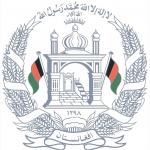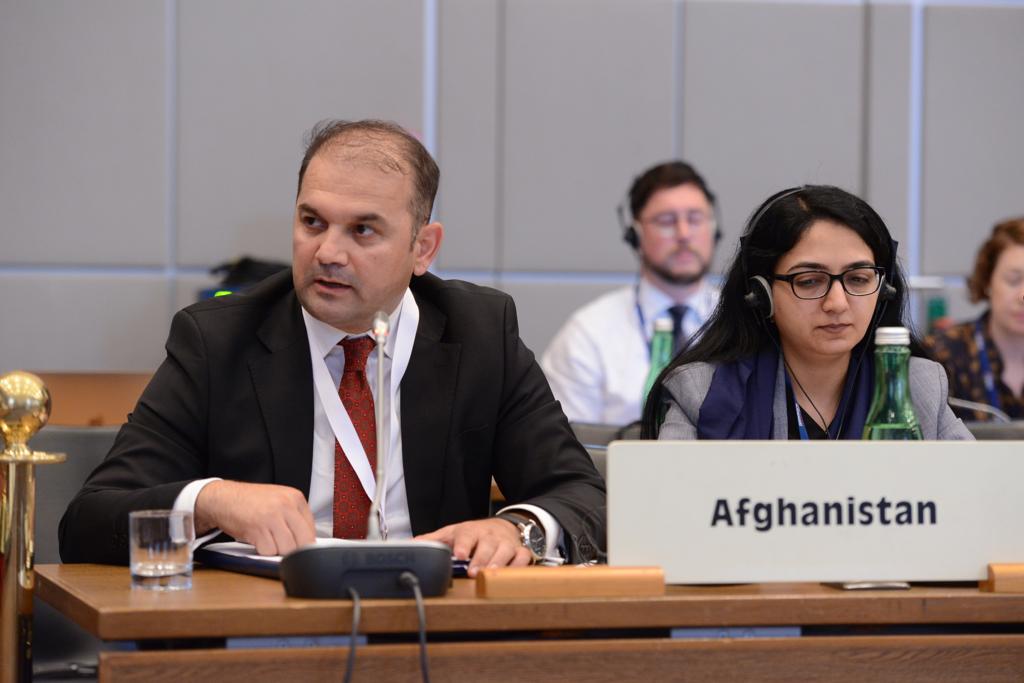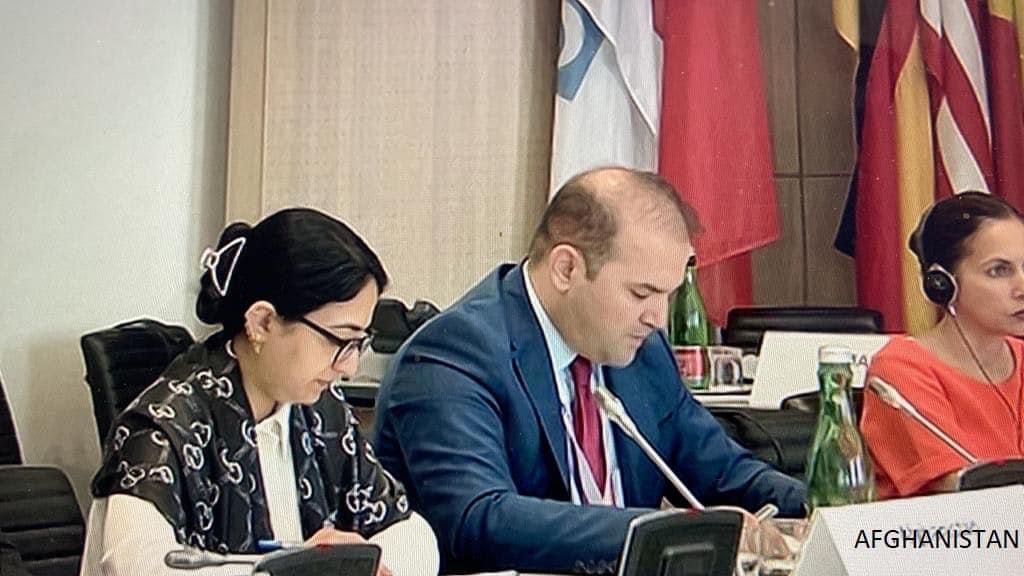Statement of the Permanent Mission of the Islamic Republic of Afghanistan
Vienna, 17 and 18 July 2023
Excellencies, Ladies and Gentlemen,
It is an honor and pleasure for me to address the 2023 OSCE Asian Conference. On behalf of my ambassador, who regrettably cannot be here today, I would like to commend Poland as Chair of the Asian Partners for Cooperation Group, and the OSCE Secretariat for their excellent coordination and dedication to co-organizing this Conference with Australia. We also thank North Macedonia as Chair-in-Office of the OSCE for its ongoing skillful leadership in a time of unprecedented challenges.
The conference theme reflects our concern over complex transnational and global threats and the need to address them collectively. In the same light, addressing the challenges emanating from the recent developments in Afghanistan is a shared responsibility that necessitates multilateral cooperation.
The challenges faced by Afghanistan are not limited to its borders; they are transnational in nature and have implications for international security, particularly within the OSCE region. In particular, the Taliban’s presence in power provides an environment that fosters terrorism. The link between the Taliban and Al-Qaida and other regional and international terrorist groups, including the Tahrik-e-Taliban Pakistan, remains strong and symbiotic. The situation on the ground has provided a favorable environment for over twenty extremist groups to operate freely, with unrestricted movement. This has allowed foreign terrorist fighters (FF’s) to carry out attacks across Afghanistan’s territory.
Furthermore, the undeniable involvement of the Taliban in the illicit narcotics industry highlights their continued engagement with the production and trafficking of narcotics. Illicit sources of finance continue as significant sources of illicit revenue for the Taliban. The Taliban have increased the number of laboratories processing opium in Helmand, Badakhshan, and Khost where it is converted into heroin and smuggled out of the country to be sold on the global market. Restrictions announced but not implemented by the Taliban on Afghan drug production have caused the wholesale price of methamphetamine to double, with the total production of this synthetic drug in Afghanistan now surpassing that of heroin.
Ladies and Gentlemen,
The situation of women and girls continues to be ever so alarming. The most recent Report on the Situation of women and girls in Afghanistan, presented by the Special Rapporteur on the situation of human rights in Afghanistan and the Working Group on discrimination against women and girls, provides a comprehensive and supportive response by UN actors to the assertion that the actions of the Taliban amount to acts of gender apartheid, demanding appropriate action. Labeling the Taliban’s abuses as apartheid serves to emphasize that it is the responsibility of other states, actors, and the international community as a whole to take effective measures to eradicate this practice, similar to the efforts made to end racial apartheid in southern Africa. Promoting gender equality and empowering women should remain at the forefront of our efforts to address common challenges in the changing global security environment.
Ladies and Gentlemen,
Lastly, we call upon the international community to acknowledge the imperative of a new and adjusted approach in stabilizing the situation in Afghanistan, by supporting a meaningful political process that fosters inclusive and representative governance, that reflects the diversity, needs, and aspirations of its entire population, including women, in order to build a prosperous and peaceful future for all.
The international community must take a decisive position and convey a collective and cohesive message opposing any form of official recognition or unconditional engagement with the Taliban.
In conclusion, the security of each OSCE participating State and Partner is inseparably linked to that of Afghanistan. We should not underestimate the spillover effects the changing security situation in Afghanistan can have on the overall OSCE region and beyond. I, therefore, take this opportunity to call on all States to increase their contributions to the Afghan Repository Programme and to continue to translate the Framework for Response to the Implications of Afghanistan for the OSCE Region (RIAOR) into an impactful package of concrete actions.
I thank you.
The OSCE Asian Partners for Co-operation Group Meeting under the 2023 Polish Chairpersonship in cooperation with Thailand. Thematic Discussion: “Ensuring Human Security through Promoting Humanitarian Responses in Cross-border Conflicts and Emergencies”
Statement of the Permanent Mission of the Islamic Republic of Afghanistan for
Friday, 14 July 2023 at 10 a.m. in Hofburg, Ratsaal
Dear Ambassador Adam Hałaciński, Dear Secretary General Ms. Helga Schmid, Dear Ambassador Vilawan Mangklatanakul, Distinguished Ambassadors, Excellencies, Esteemed Partners, Ladies and Gentlemen
First and foremost, I would like to express my sincere gratitude to Poland and the Delegation of Thailand for co-hosting this second OSCE Asian Partners for Co-operation Group meeting. I also extend my appreciation to all the esteemed speakers for their valuable interventions and perspectives.
I would like to acknowledge Thailand’s commendable efforts in Afghanistan, specifically in providing direct humanitarian support to the Afghan people. Thailand’s commitment to helping Afghanistan deserves recognition. Firstly, in September 2021, Thailand made a generous donation of 150 thousand U.S. dollars to the United Nations World Food Program, effectively providing food and essential supplies to the Afghan people. Additionally, in September 2022, Thailand donated 1,000,000 (1 million) Thai baht to the International Committee of the Red Cross directed towards supporting individuals impacted by the earthquake. Lastly, we wish to thank Thailand for making contributions to the OSCE Partnership Fund, intending to support projects under the RIAOR framework.
While we acknowledge the efforts of Thailand and other countries, it is crucial not to overlook the critical healthcare situation in Afghanistan, especially for women. The healthcare situation for women under the Taliban is dire. Women in Afghanistan face unequal access to healthcare. Under the pretexts of religion and concern for their “safety”, the Taliban has effectively confined women and girls within their homes. They are prevented from getting an education, leaving their homes without a male relative (maharam), working, and accessing healthcare services provided by men. These measures make it nearly impossible for women to access essential healthcare services.
Moreover, the impact of the Taliban’s military takeover in 2021 extends beyond the borders of Afghanistan, leading to a significant displacement crisis and a large wave of refugees seeking safety in other countries. This situation has created additional challenges for individuals such as asylum seekers, refugees, internally displaced people, and migrant workers, along with other vulnerable groups. It is crucial that all OSCE participating States uphold their international obligations and work together to provide the necessary support and find long-term solutions to protect and assist those forced to flee their homes due to conflict or persecution, similar to the situation in Afghanistan.
In conclusion, I firmly believe that the OSCE possesses the potential to maximize existing mechanisms and initiatives to address these pressing challenges. The implementation of RIAOR framework is crucial in this regard. It is imperative that we extend our support to the Afghan people, aiming to improve their situation and ensuring their well-being and prosperity. The people of Afghanistan deserve a people’s-centric governing structure that is able to meet the people’s will, needs and aspirations.
Thank you.
The OSCE Programme Office in Bishkek announces two initiatives aimed at supporting Afghanistan
As a developing country, the optimization of our border and customs agencies significantly impacts the trajectory of Afghanistan’s advancement. Therefore, we attach great importance to these projects. We are hugely grateful for the continued support and collaboration of the OSCE Programme Office in Bishkek with our government. The OSCE Programme Office in Bishkek can expect full participation from our side to ensure the success of these initiatives.


